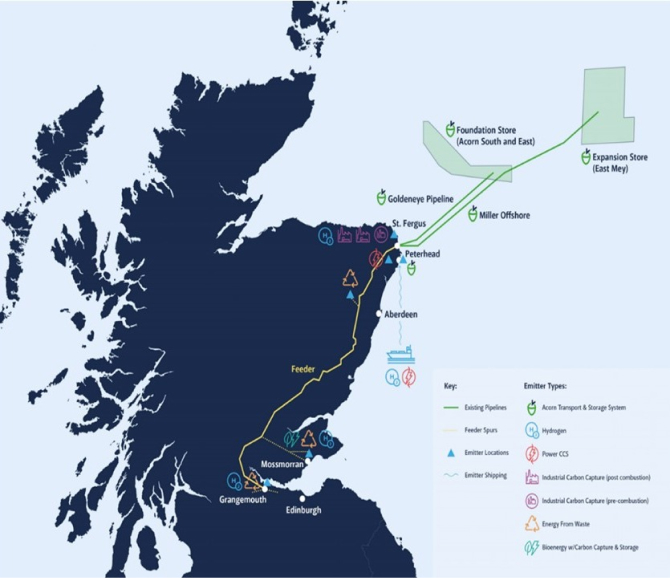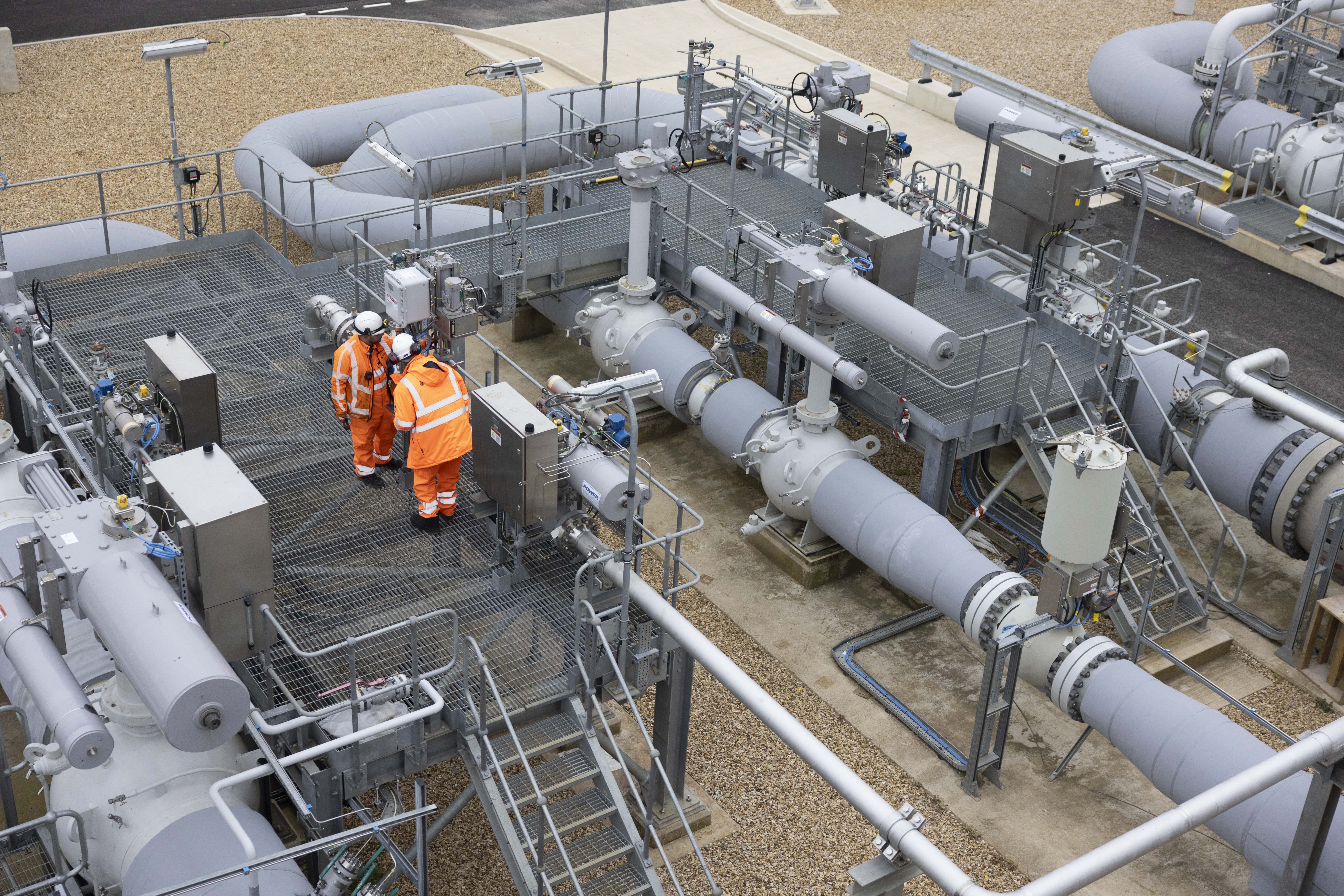THE FUTURE OF ENERGY
Carbon Capture and Storage (CCS)
National Gas is investing in new Carbon Capture and Storage (CCS) infrastructure that will help industries across Scotland to decarbonise, while also creating new jobs and industries for the future.
What is Carbon Capture and Storage (CCS)?
CCS involves capturing carbon dioxide (CO2) emissions from industrial facilities and power stations, and transporting them by pipeline or ship for safe and permanent storage deep underground. CCS prevents CO2 from entering the atmosphere and is therefore an important way to reduce carbon emissions in line with the UK’s net zero target.
Supporting UK decarbonisation targets
The UK government plans to develop a new competitive market in CCS by 2035. To achieve this goal, it initially aims to establish CCS in four industrial clusters by 2030, capturing 20-30 million tonnes of CO2. These clusters are the HyNet cluster in Northwest England and North Wales, the East Coast cluster in Teesside and Humberside, the Viking project in the Humber and the Acorn project in Northeast Scotland.
Building Scotland’s CCS network
National Gas is supporting the development of CCS in the Scottish cluster. We are working with key partners to develop a first-of-a-kind CO2 transport and storage system for Scotland, which will directly enable industrial and power sectors to decarbonise.
Through our SCO2T Connect project, National Gas plans to design, construct, own and operate the onshore CO2 transportation infrastructure. This will take CO2 from the emitter sites in Scotland’s central belt and carry it approximately 185 miles to the interface point at St Fergus, where we operate our St Fergus Gas Terminal. From here, it will be transported offshore and stored safely in depleted oil and gas fields under the North Sea.
National Gas pipelines
Repurposing existing National Gas NTS pipelines provides a cost-effective solution for transporting CO2 onshore – just as we are repurposing NTS assets to transport hydrogen for Project Union. The primary solution considers the use of 175 miles of repurposed gas pipelines, creating a CO2 transportation backbone for Scotland. A further 38 miles of new pipelines will be built to connect industrial sites to these repurposed pipelines.
Industrial plants and power stations will have the opportunity to connect directly to this network to reduce their CO2 missions.

Why CCS matters for Scotland
Growing Scotland’s economy
- up to £21 billion in investment by 2050
Supporting net zero
- 5-10 million tonnes of greenhouse gas emissions kept out of the atmosphere by 2030
- the potential to decrease up to a quarter of Scotland’s CO2 emissions, should expansion scenarios be realised
Creating and protecting jobs
- 2,300 operational jobs created in Scotland
- 4,700 jobs in the Scottish economy during the development and construction phase
- 12,100 jobs safeguarded in Scotland

